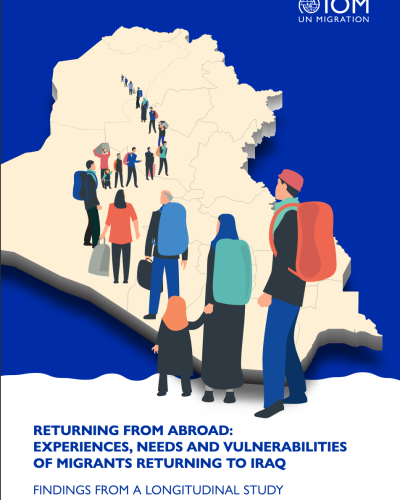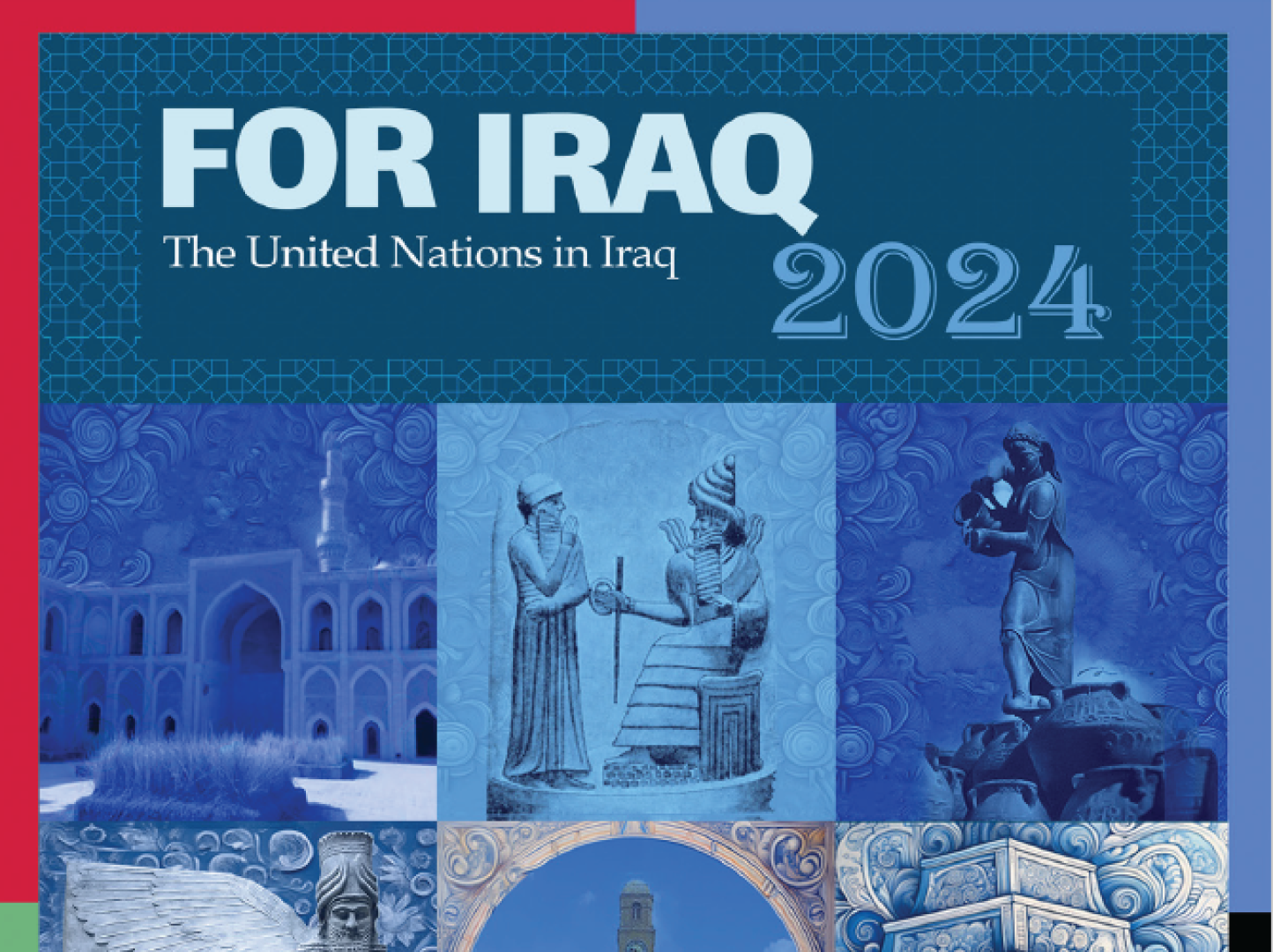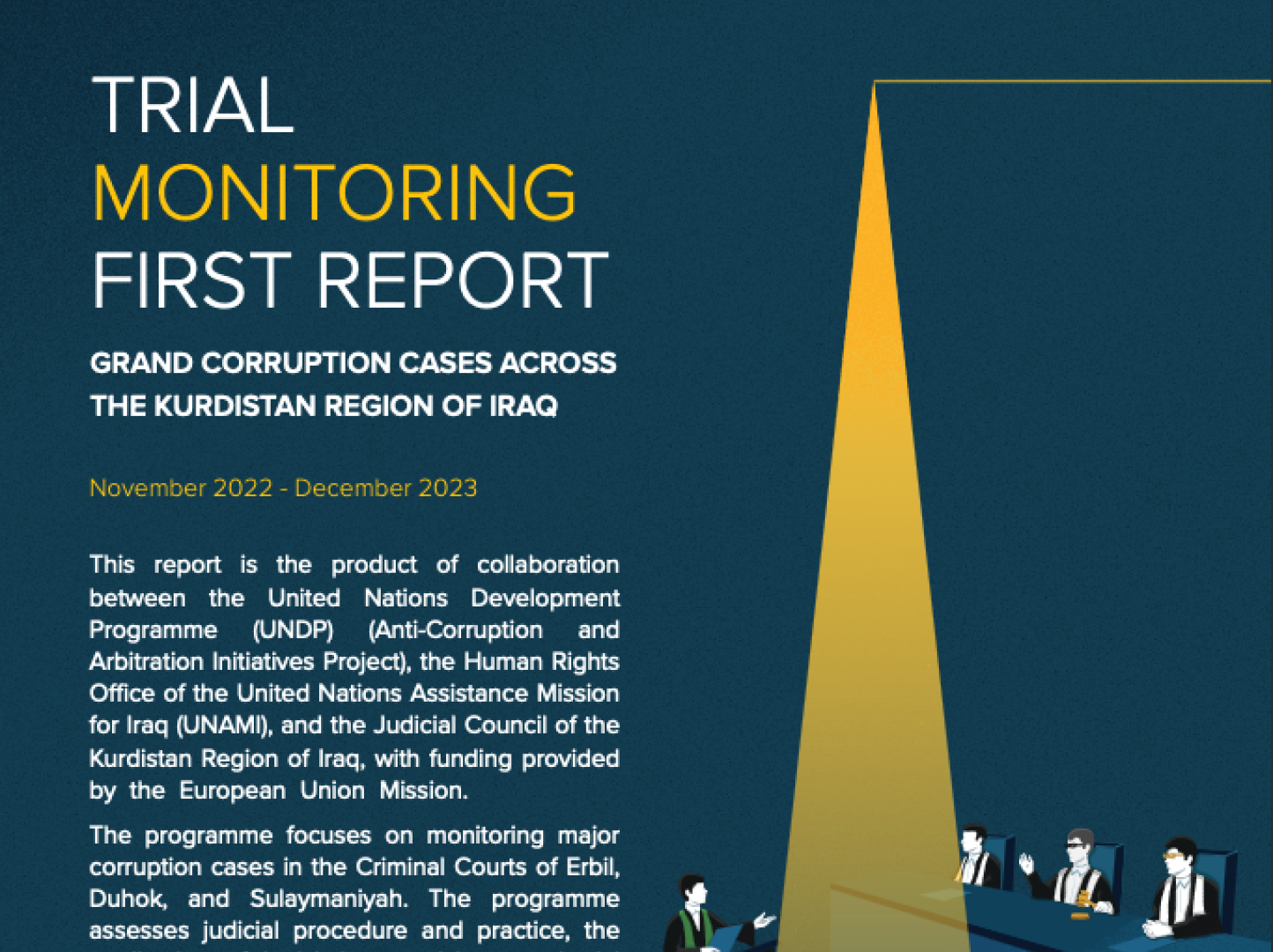Returning from Abroad: Experiences, Needs and Vulnerabilities of Migrants Returning to Iraq: Findings from a Longitudinal Study

MIGRATION CONTEXT
• Sur veyed migrants were relatively young: respondents were on average 30 years old.
• The overall drivers of migration to Europe were security and unemployment, as well as the encouragement of family or friends to join them in the country of migration.
• A majority of respondents reported economic challenges abroad, such as insufficient income or lack of employment.
• Most respondents intended to stay permanently in Europe. The main reason for returning to Iraq was having an asylum claim rejected.
RETURN AND REINTEGRATION IN IRAQ
ECONOMIC
• Findings suggest that as time goes on after returning home from abroad, the financial benefits of migration were not long-term and instead offered only temporary economic relief for the sampled individuals.
• Respondents experienced three main types of personal challenges: insufficient income, unemployment, and to a lesser extent lack of hope for their future in Iraq (7%).
• The main type of work of returned migrants was daily labour, reported by one in three respondents.
This was followed by house assistants (all of whom were female respondents), and self-employment.
• Among the respondents who provide for their families, over eight in ten claimed not to have sufficient monthly income to cover basic needs.
Over half reported earning less than 250,000 Iraqi Dinar (IQD) or having no income. Over 50 per cent of returned migrants reported having borrowed money as a coping strategy.
• A large majority of respondents reported that age, the lack of connections in the community and the lack of patronage (wasta) were the main barriers to employment, as well as high levels of competition.
• The number of returned migrants who reported that they ‘often’ or ‘very often’ used coping strategies – such as reducing food quantity – to deal with financial insecurity increased from 27 per cent in 2020 to 41 per cent in 2021.
HOUSING AND SERVICES
• Adequate access to housing decreased from 2020 to 2021, with almost half of respondents (45%) reported poor to very poor access to housing.
• About 1 in 5 respondents reported poor access to documentation.
• The vast majority have access to essential services like water, electricity, healthcare and education. However, half reported poor quality healthcare provision
COMMUNITY AND SUPPORT NETWORKS
• 1 in 5 of respondents reported having bad or very bad support networks (including people on whom they can rely) in their area of return.
• Similarly, 1 in 3 reported not feeling a sense of belonging in the community. The extent of female respondents’ sense of belonging fell between 2020 (78%) and 2021 (53%), while males’ sense of belonging went unchanged (55%). However, the majority of those interviewed (68%) indicated never or only rarely receiving different treatment from the community due to having migrated abroad.
• Additionally, most respondents (70%) reported they 1 The United States hosts 256,028 Iraqi migrants at mid-year 2020, while Turkey and Germany host 233,288 and 226,480 Iraqis, respectively.
United Nations Department of Economic and Social Affairs, Population Division (2020). International Migrant Stock 2020. 2 IOM. 2016. Migration Flows from Iraq to Europe. Reasons Behind Migration. 3 2.1 million emigrants at mid-year 2020: United Nations Department of Economic and Social Affairs, Population Division (2020). International Migrant Stock 2020. 4 See: Diab, J. (2022). Refugees in Iraq: An Overview. Lebanese American University. feel safe or very safe in the community. However, only 61 per cent of women reported they feel this way to walk alone during the day.
LOOKING AHEAD
• Nearly half of all respondents indicated that they intended to migrate abroad from Iraq again in the 6 months following the final round of data collection.
When asked why they intend to migrate again, the majority cited a lack of jobs, followed by a perception of not seeing a promising future in Iraq, and lack of security.





